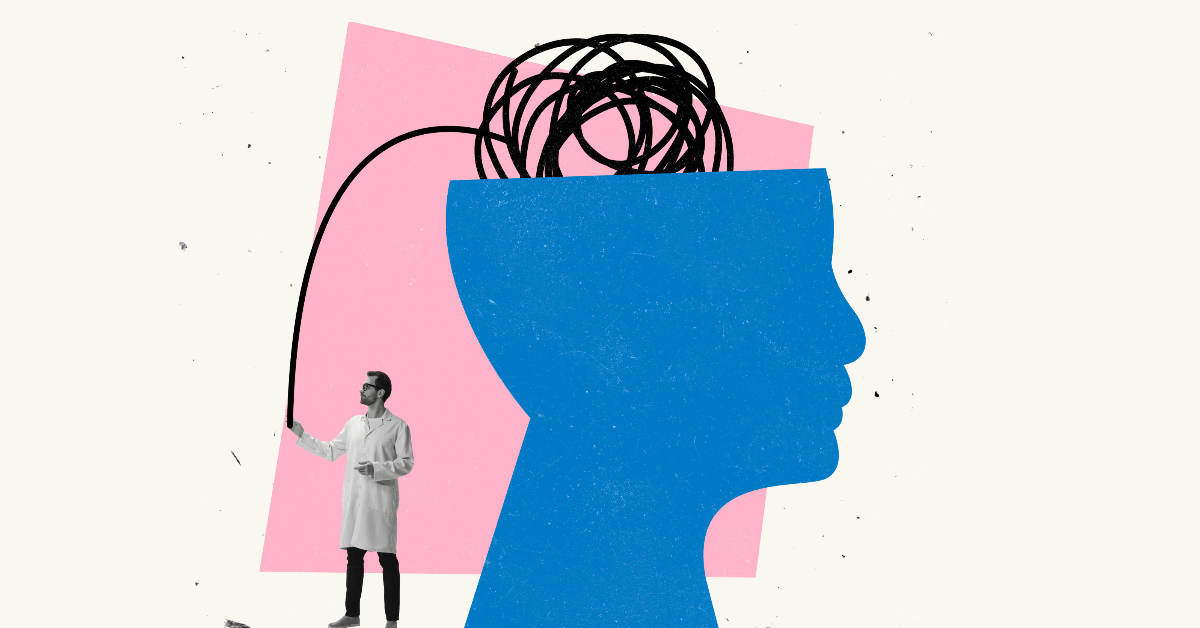I don’t feel like getting out of bed in the morning. I’m losing interest in stuff once I used to enjoy. I feel exhausted all the time. I’m losing touch with all my friends. I find it hard to sleep at night, and if by mistake, I wake up in the middle of the night, I can not fall asleep again. Not only that, everyone I started with is doing great but I can’t even make sense of what I’m doing with my life. Am I even good enough? Why do I suck at everything I do? I don’t even have a real person to relay on when I feel low. How could I not find a single person who could love me for who I am? Am I not loveable? Am I overthinking again? Shit, I am!! Argh!! Why do I always overthink everything! Why, Why, Why God Why! Why do I overthink so much!!
Sounds familiar? Of course it does. Almost every overthinker fits this description. You are not alone, nor you are mentally sick. Unfortunately, you are just a Normal Human Being (pun intended). This beautiful loop is just a part of being human.
The Question arises, if most of it is overthinking, does that mean you can completely ignore the signs of a comprising mental health and every time you catch yourself stuck in this loop, you should conclude that it’s nothing but pure overthinking?
No, that is not the case and no, it’s not always overthinking however, there’s a thin line which separates these two from one another, and if you can figure that out, you can leverage it to improve the situation either by addressing overthinking or compromised mental health with approaches and advises discussed below.
How exactly overthinking differ from mental illness?
One of the major challenges faced by most of us while separating these two is their overlapping symptoms & signs. Both can be triggered by similar factors or situations such as fear of failure, lack of confidence, negative surrounding, uncertainties and past traumas etc. Some of the important advises and factors are discussed below which can help you differentiate between these two and address each accordingly.
1. Identify the nature of thoughts to check your mental health
To spot overthinking, identify the nature of your thoughts. Is it repetitive and unproductive? Does this thought loop endlessly with no resolution or whatsoever? Check if what seems a major concern now is actually the result of a hypothetical scenario woven by your smart mind. If that’s the case, it may be your mind playing tricks on you. It may be just overthinking and has nothing to do with your mental health.
2. Closely observe the duration and severity:
While it’s no surprise that overthinking can cause temporary discomfort, however it usually subsides once the issue causing this distress is addressed such as, for an individual, the thought of catching an early flight might trigger a loop which eventually will fade away once he or she is on that flight, however that’s not the case with mental health issues. Mental health disorders persist over time and significantly impact daily functioning, relationships, and overall quality of life and you may also experience persistent low mood, intense fear or worry, changes in appetite or sleep patterns, and impaired concentration. You find yourself stuck with no way out. The solutions such as working out, socializing, or playing with kids, may not work really well if your mental health is affected. You may feel good for a moment, but may fall back again.
3. Check if it impacts your Behaviour:
If it’s just overthinking, it’s okay to notice avoidance in behavior, procrastination, difficulty in making decision etc. but none of this typically results in significant disruption to your life. However, in case of mental health disorders, you may notice social withdrawal, substance abuse and even the thought of self-harm etc.
4. Response to coping strategies:
As explained above, an overthinker may find relief through healthy coping mechanism such as mindfulness, reading or journaling, hanging out with friends or playing with pets or kids. However, these strategies may fail to help in case of mental health issues and you may need to consult a professional.
Conclusion:
Understanding mental health and being able to separate it from overthinking is the first step but if you suspect that your mental health may be significantly impacted, seek professional help. What a professional can do, your friends or family might not be able to do. Best of luck! Until you get professional help, surround yourself with positive energy. You’ll be surprised to know the wonders it can do to your mental health.




